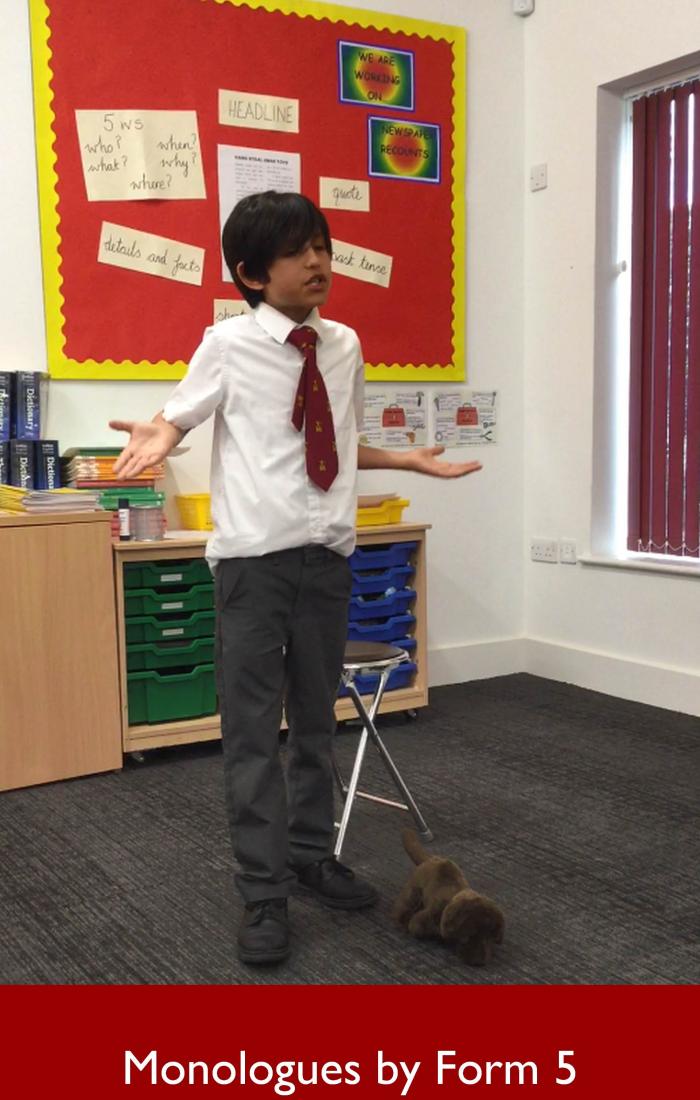
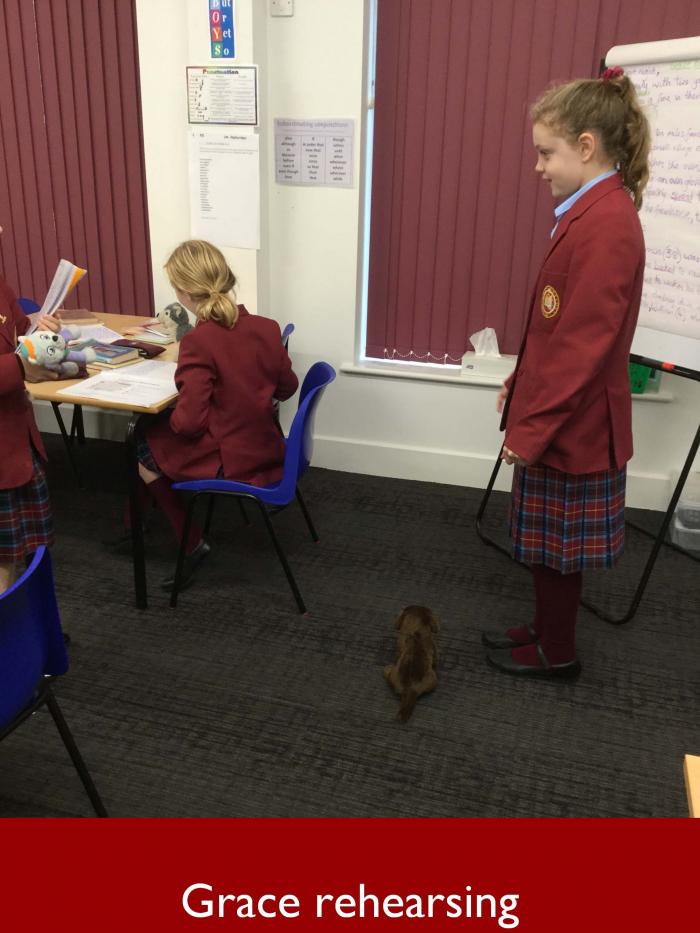
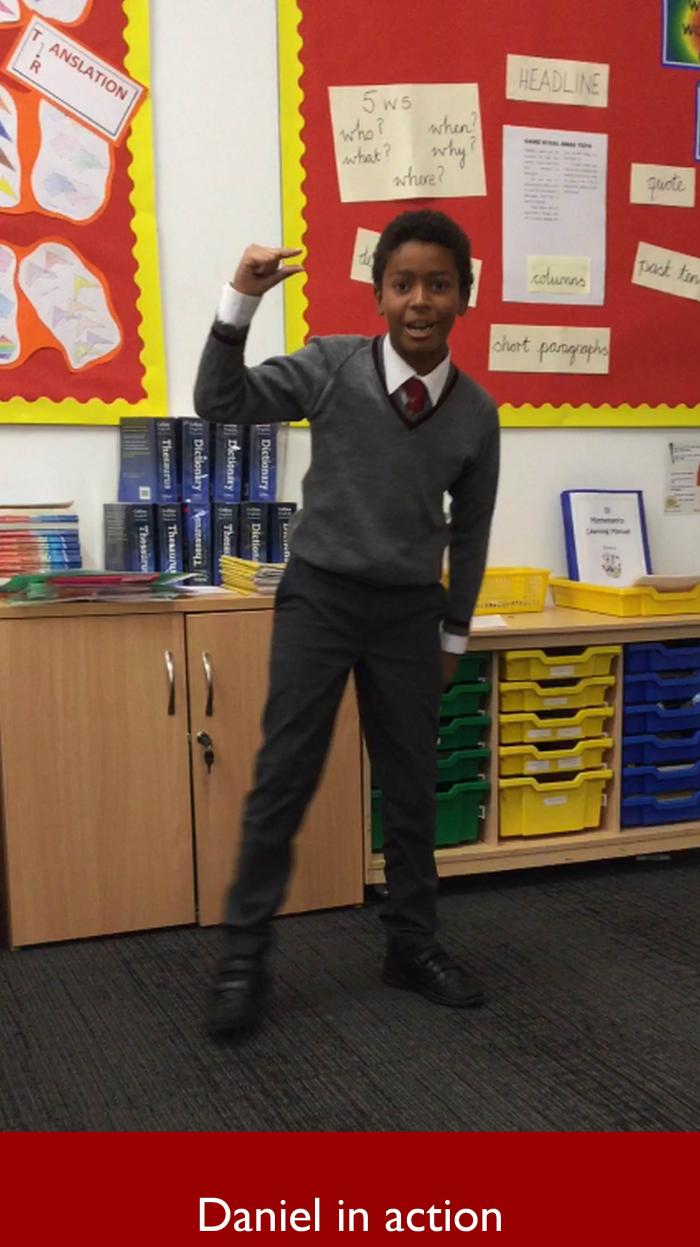
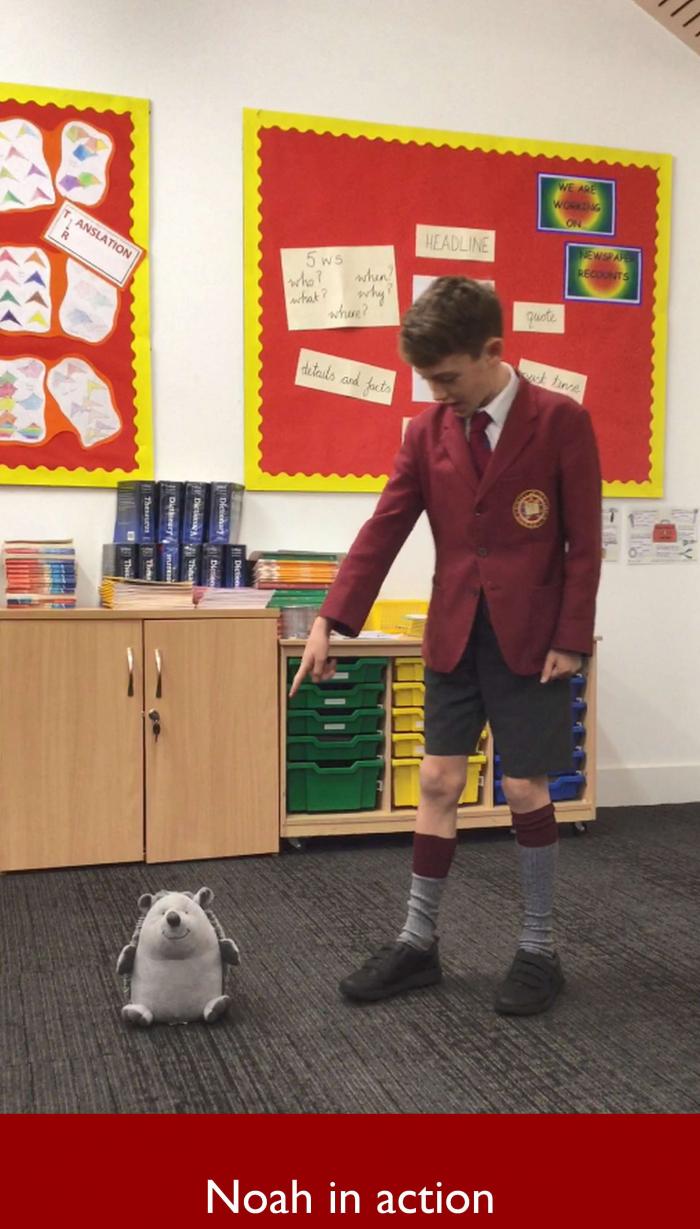
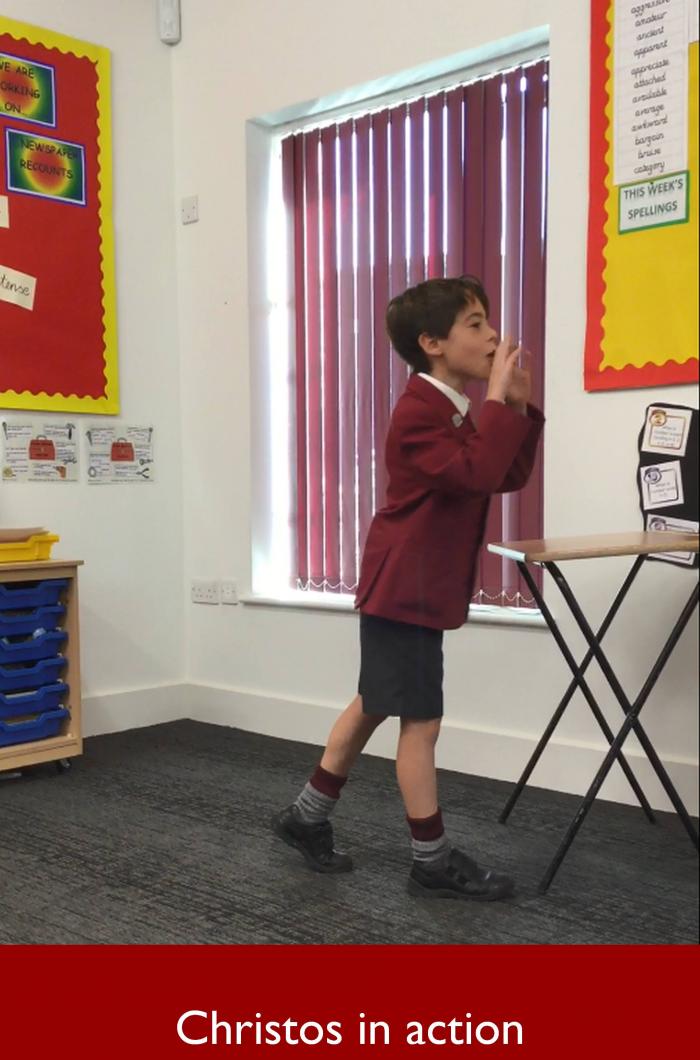
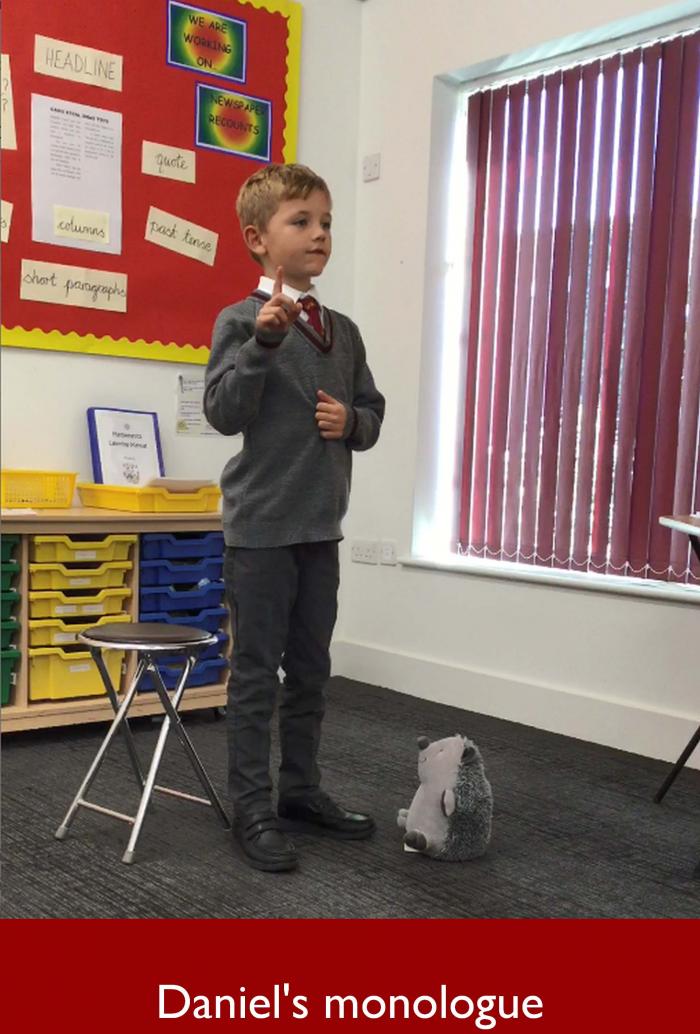
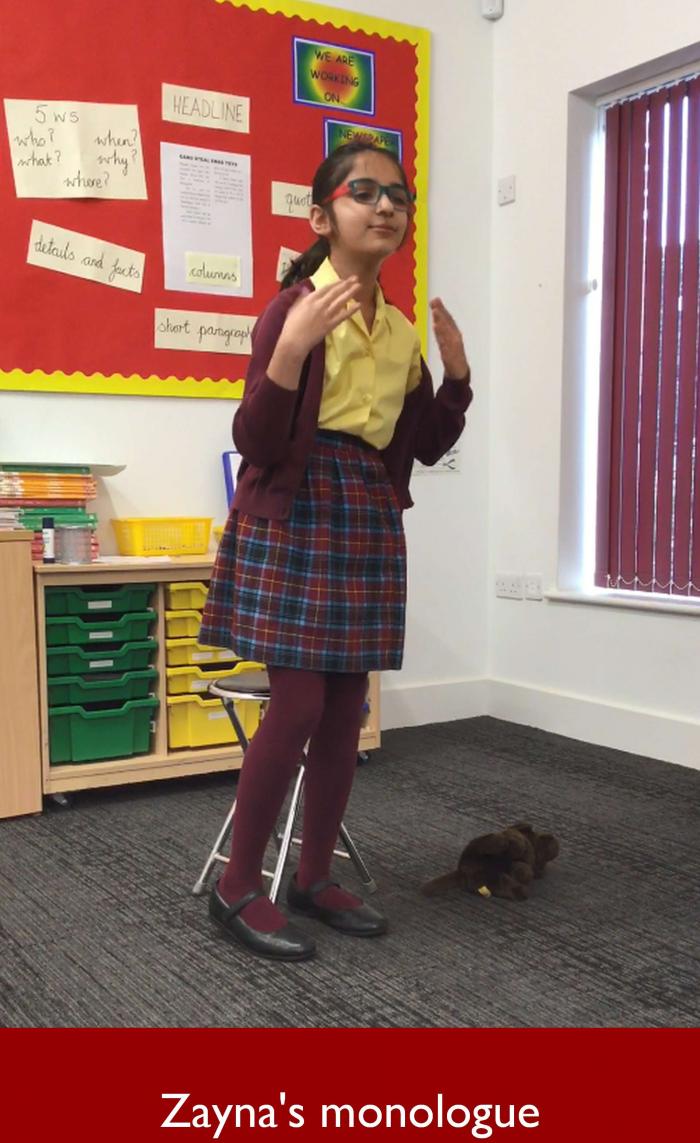
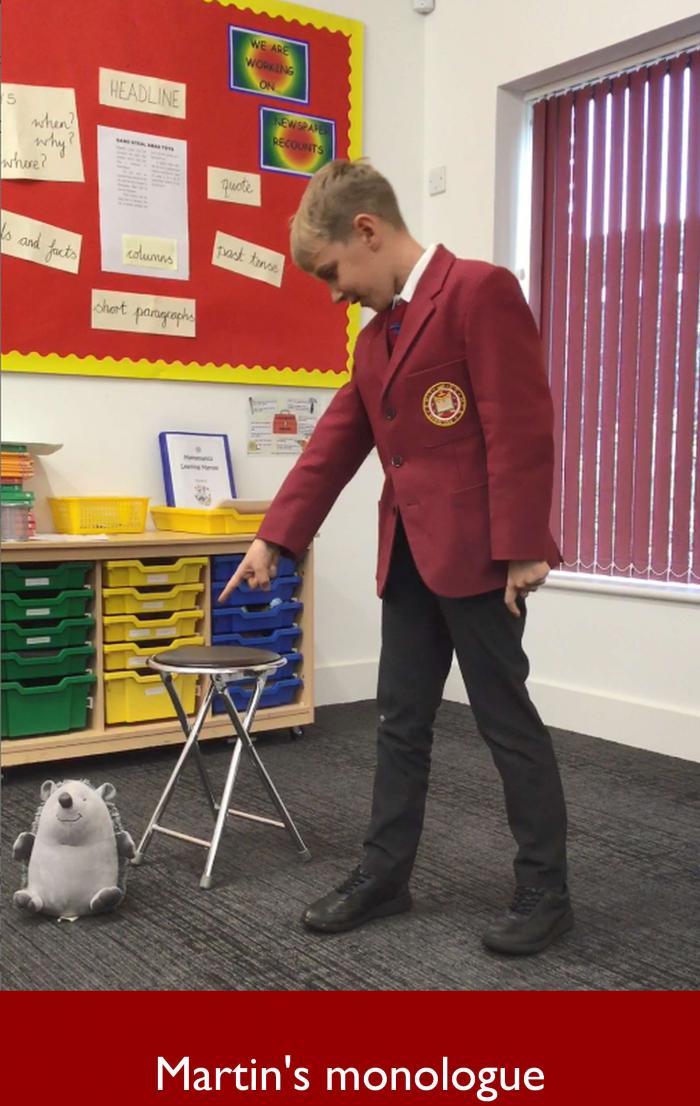
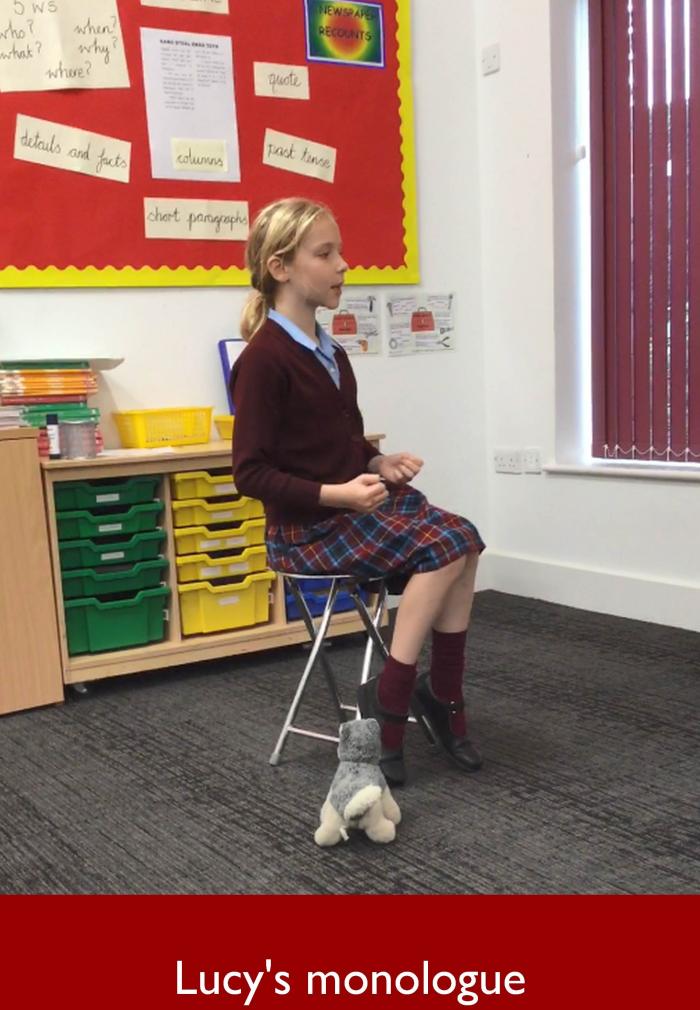
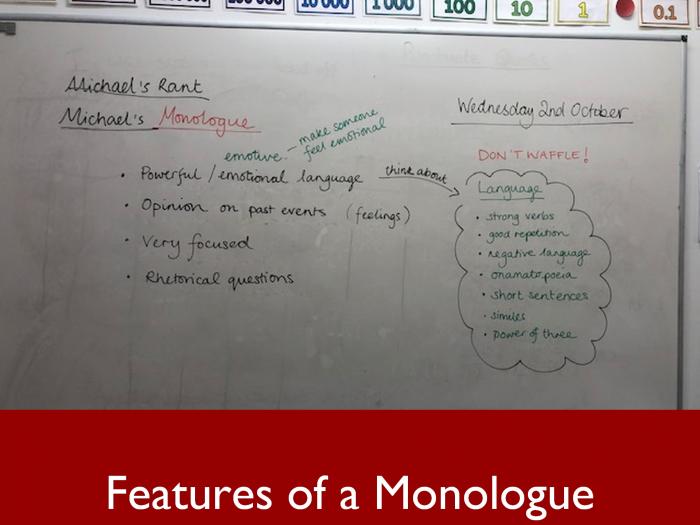
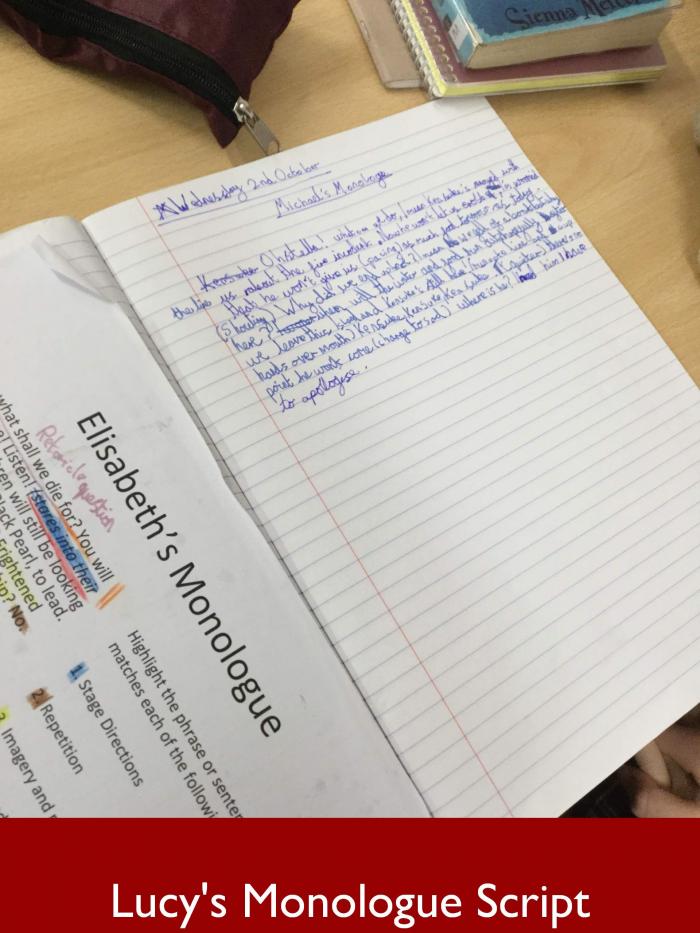
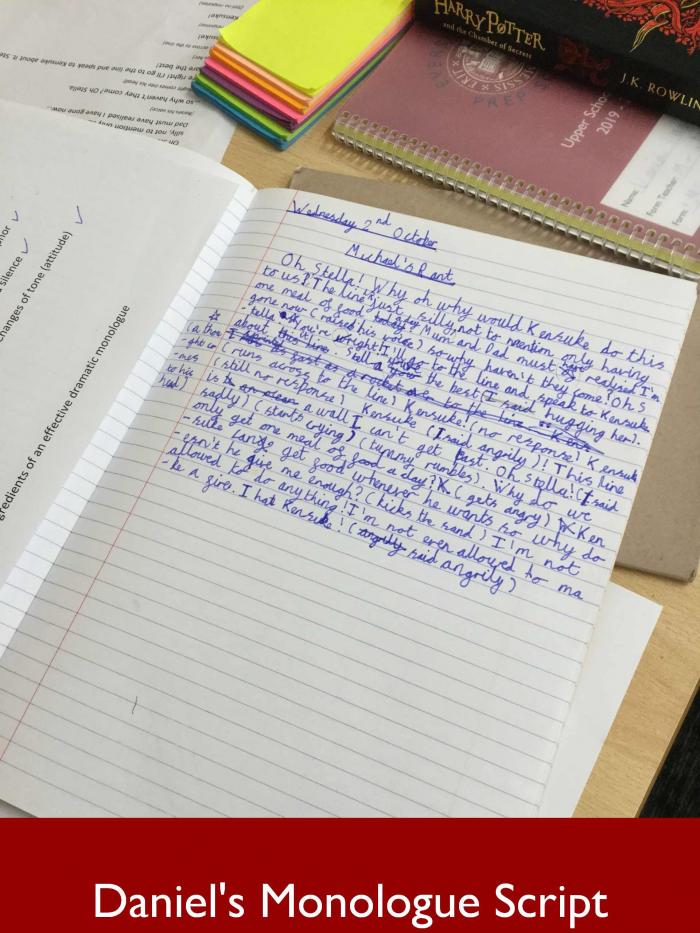
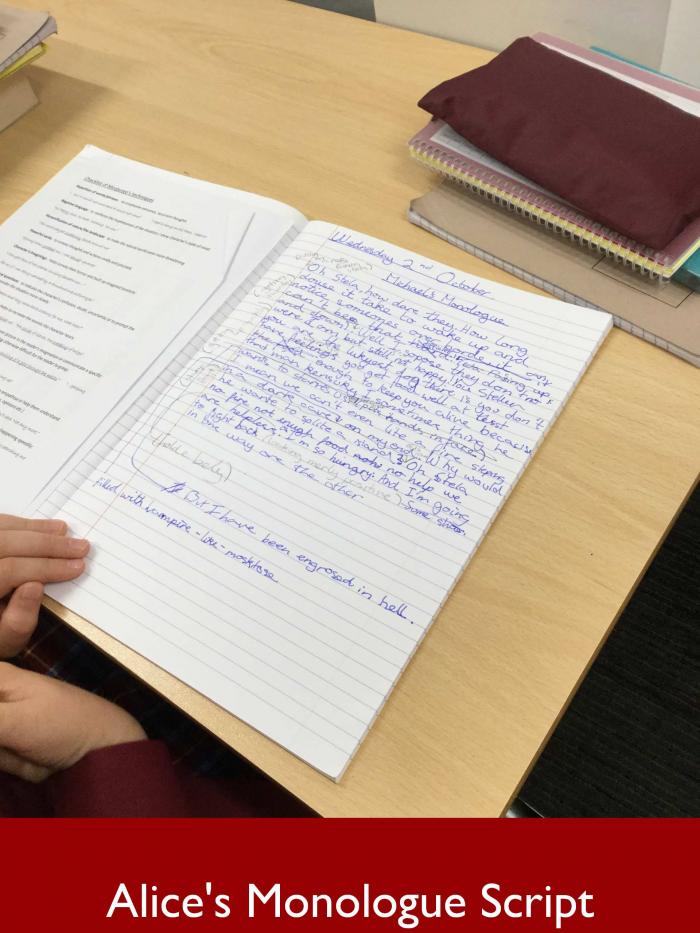
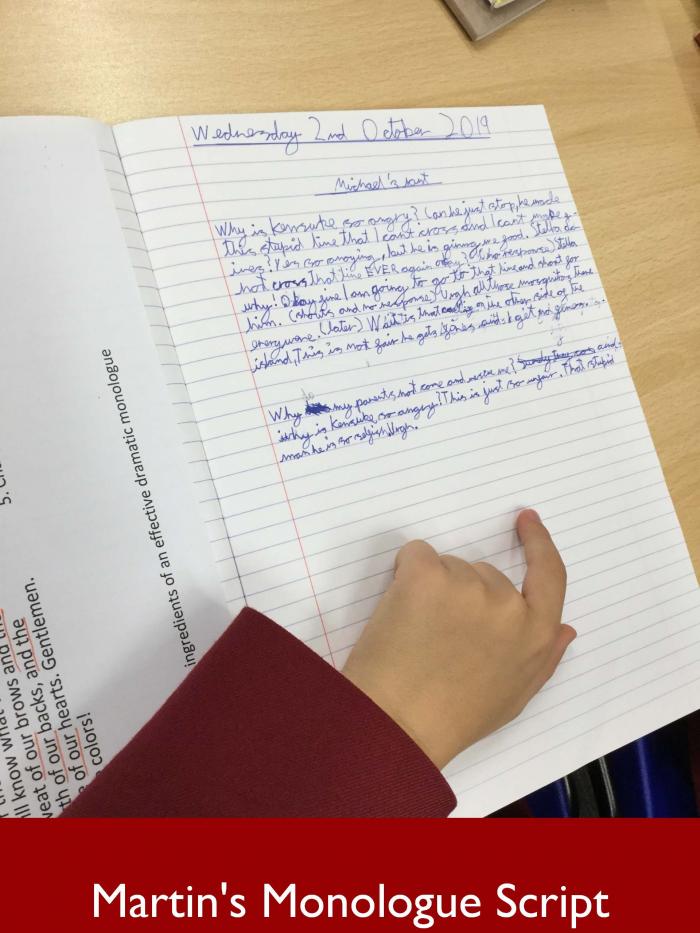
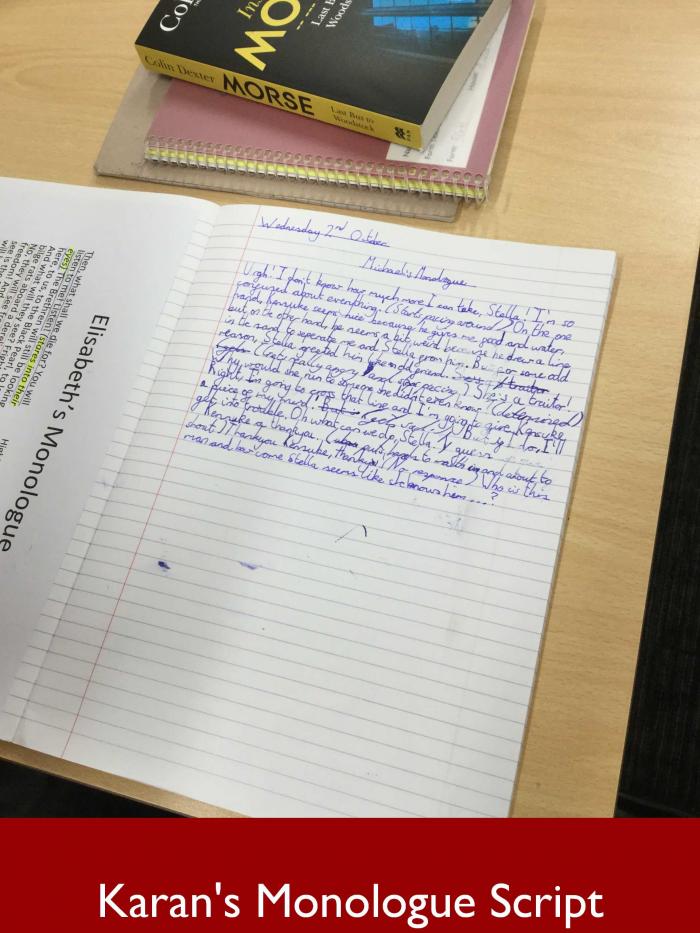
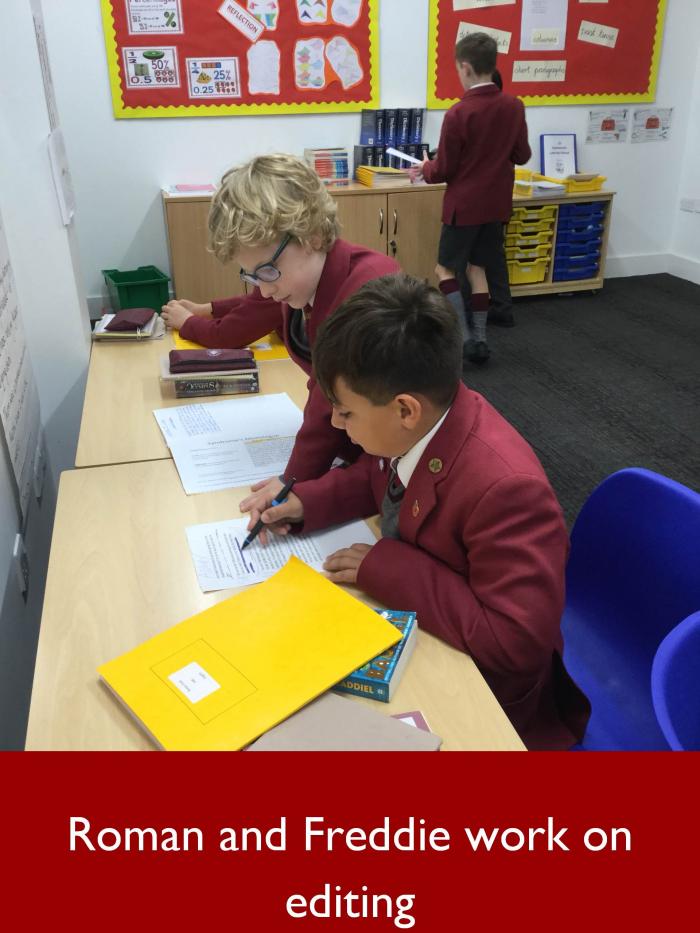
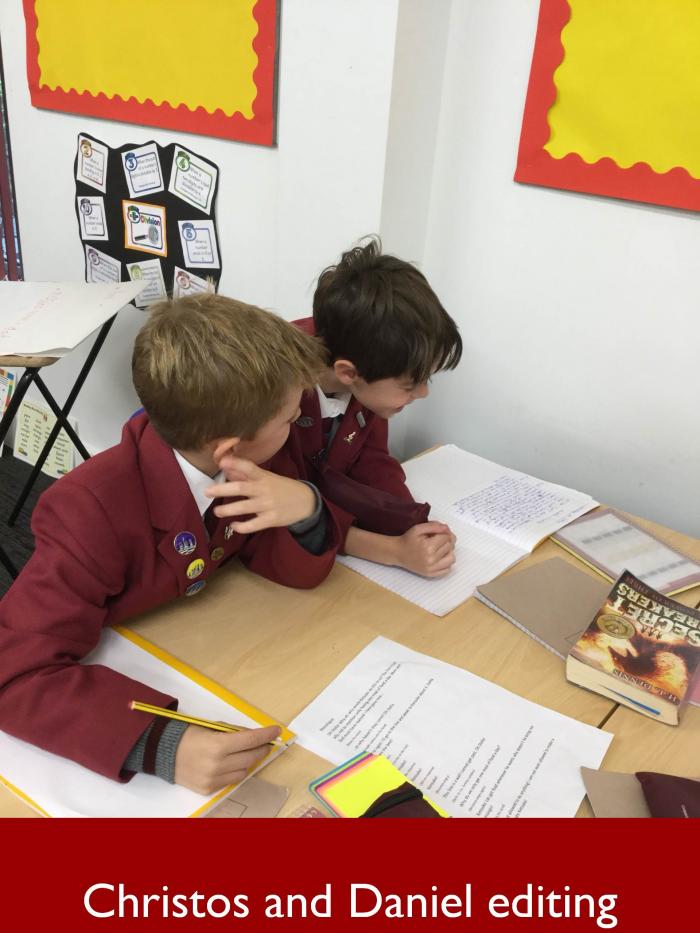
Monoblogue
Lost overboard from his family’s yacht in the middle of the Pacific Ocean, it’s hard to imagine how things could get much worse for Michael, the hero of the classic novel Kensuke’s Kingdom by Michael Morpurgo. He finds himself washed up on a tropical island with his pet dog, Stella Artois, where the only other inhabitant is a fierce little man who insists that Michael should obey his rather draconian set of rules. ‘Dameda’, meaning forbidden, seems to be Kensuke’s favourite word. Poor Michael is hot, filthy and exhausted, and the chances of being rescued seem slim to say the least.
It is this feeling of anxiety and frustration that Mrs Phillips’ English group have sought to capture in their recent work on monologues. Kensuke’s Kingdom is an ideal stimulus for this genre of writing as Michael himself narrates the story. His voice is clear and strong, making it easy for the children to empathise with his predicament.
The monologues are a sample of what amounts to little more than a minute of performance for each child. Yet they represent the culmination of an enormous amount of work for the children, to say nothing of the courage required to speak in front of their classmates and allow themselves to be filmed.
The chapter on which the monologues are based comes roughly in the middle of the novel, meaning that the children were already quite familiar with Michael’s character when they approached the task. To convey this understanding through a monologue, Mrs Phillips first shared examples of other monologues both on screen and in written form. This helped the children identify the key features of a monologue.
Essentially, what is needed is a deeply felt reflection on the character’s experiences, provoking the use of highly emotive language and forthright opinions. Rhetorical questions are important because they help the character begin to make sense of what is happening. In Kensuke’s Kingdom, the presence of Stella the dog provides Michael with an obvious focus for his questioning. You will see that, in the absence of a real live dog, Form 5 found a couple of soft toy friends who were happy to step in and play Stella’s part. For several children, Stella made for an ideal lead into the monologue so, for instance, we have Karan gasping, ‘I don’t know how much more I can take, Stella!’
Writing the monologues wasn’t as straightforward as writing pure narrative because stage directions are required throughout. Daniel was very precise in what he wrote, noting down when Michael gets particularly angry, and when he raises his voice. Once written and edited, the monologues had to be memorised perfectly.
Even then, the job was not done. The next stage was to consider how they could best be performed. For some children, this was the most daunting aspect of the entire project, and led to more editing as the children grappled with the fact that spoken language is not what they are particularly used to writing down at school. This writing had to sound just right in order to be authentic when performed. Freddie found the tone perfectly with, ‘Sure he feeds me every day but he’s pushing his luck if we’re both going to stay here.’
Using actions to enhance the meaning of the words was yet another challenge and, in order to be effective, the acting had to flow and appear natural. Children paced about the classroom, and hid their heads in their hands, and at the same time they had to remember they were speaking to an audience and had to project their voices.
I have been lucky enough to watch all the monologues in full. What we have here for you to enjoy is a compilation of a few of them, designed to give you a flavour of what has been achieved. Although this was an exercise primarily in drama, the experience of rehearsing and performing a monologue cannot fail to help the children develop as readers as well as writers. Strong, believable characters drive any good narrative, and successful characterisation relies on an author’s ability to empathise as they tell the story. Since completing their monologues, Mrs Phillips’ group have gone on to discover more about the mysterious Kensuke and the reasons why he is on the island, which provide a surprising twist to the tale. Having gone through the process of constructing their monologues, they are better equipped to understand why he behaves in the way he does and, like Michael, ultimately to respect him much more as a person.